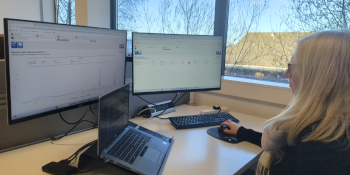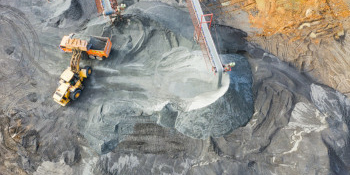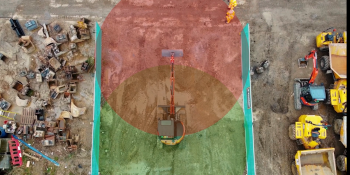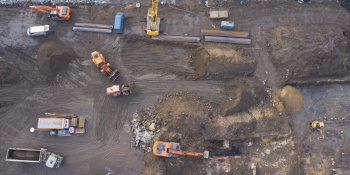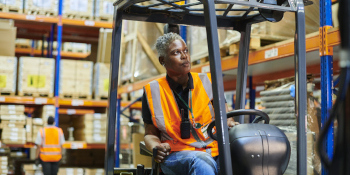When something is consistently making progress, and steadily evolving, we tend to say that it’s in a constant state of motion. We can also describe this as inertia - when something is constantly moving forward, it tends to keep moving forward.
But inertia doesn’t only apply to objects in motion. It applies to objects in any constant state, including a state of rest. In fact, inertia isn’t just what keeps things moving along, it’s also the reason why it’s often so difficult to get something moving, in the first place.
Ultimately, at a fundamental level, inertia dictates that any given thing will remain in the state that it’s already in. For better, or for worse.
And that universal principle - that an object will stay right where it is until something changes its position or course - applies to constant states of just about anything, including a constant state of guesswork.
You can’t manage what you don’t measure.
When a company tracks something, like a behaviour, they become more able to quantify progress or regression, and become better equipped to adapt, and respond. This is because real, objective data is widely considered to be the gold standard - if not the only standard - for measuring, reporting, and improving institutional progress. Without it, gathering relevant insight becomes difficult, and implementing meaningful change
becomes near-impossible.
And the premise behind this rationale is relatively simple: as Management Thinker Peter Drucker is often credited with saying: “you can’t manage what you don’t measure.”
"The ability to track behaviour is a powerful catalyst towards meaningful change, and a prime enabler of productivity. Objective data, it would seem, contributes to a constant state of forward motion."
The ability to measure and monitor real behaviour is what enables forward-thinking companies to refine their processes and make their workplace more efficient. Said otherwise: the ability to track behaviour is a powerful catalyst towards meaningful change, and a prime enabler of productivity. Objective data, it would seem, contributes to a constant state of forward motion.
But where behaviour is not tracked, and objective data not collected, analysed, and utilised to refine processes, progression is, by nature,
stalled. Without real, tangible evidence of behaviour and outcomes, driving real, tangible change becomes compromised, and the possibility of stagnation increases at an exponential rate: the longer anything remains out-of-date, or out of touch, the more difficult it becomes to achieve parity with counterparts which have moved forward, at pace.
Guesswork: how arbitrary data inhibits progress
Reactec’s suite of workplace wearables is powered by sophisticated Analytics designed to move organisations forward by taking the guesswork out of risk management. By tracking and collating objective, real-time data about worker behaviour, Reactec’s technology offers the opportunity for meaningful progress, and evolution. Said simply: taking guesswork out of the equation results in a more perfect equation, and a clearer solution. This is because imperfect equations - those built on imperfect data sets - generate deeply flawed plans of attack for companies using them to develop their action plans with regards to HAVS, or other workplace health and safety risks.
"Ultimately, a sole reliance on guesswork is the functional equivalent of entering a hall of mirrors: no matter where you look for inspiration, or seek information, what's reflected back at you is entirely incapable of looking or acting any different than it already does."
In fact, when it comes to estimating typical HAV exposure risk, data demonstrates that companies may underestimate the risk of those most likely to develop HAVS by a staggering 76 percent.
It’s clear that relying on imperfect data will generate imperfect results. And imperfect results will continue to generate imperfect conditions that will continue to put workers at risk of encountering threats to their health and wellbeing. Ultimately, a sole reliance on guesswork is the functional equivalent of entering a hall of mirrors: no matter where you look for inspiration, or turn to seek information, what’s reflected back at you is entirely incapable of looking or behaving any differently than it already does.
Progress is powered by data.
Progress is undoubtedly driven by data. Without reliable, holistic data about your individual workers’ behaviours, you’re left to guess at how you can improve your workplace safety and productivity. Importantly, measuring behaviours, and tracking actions - while certainly an exercise in exactness and objectivity - in no way stagnates innovation or blunts the potential for out-of-the-box initiatives.
In reality, it’s clear that adequately analysing your work environment doesn’t just not inhibit forward progress, it enables constant motion. The inverse is also true: without collecting and analysing reliable data, it’s all but guaranteed that progress will be stymied. And when it comes to the real world consequences of guesswork, the results are anything but hypothetical.
In 2005, legislation was passed mandating that employers carry out more specific duties to protect their employees from exposure to dangerous levels of vibration. Simultaneously, the HSE set a goal to eliminate HAVS as a RIDDOR(1) within ten years. Today, sixteen years following the passage of legislation designed to make HAVS less prevalent in the workplace, it remains the highest reported health RIDDOR to the HSE.
This ongoing threat may be attributable to the methods currently used by organisations throughout the UK to monitor and measure their workers’ exposure to vibration, which - despite enhanced legislation mandating more specific duties to employers - are largely outdated, inadequate, and unreliable. The result is that workers today are exposed to a level of risk that hasn’t reduced at a rate commensurate with the significant and
ground-breaking technological innovations that have taken place since the early 2000s.
When it comes to the laws of the universe - the very laws that dictate the way we move through the world - monitoring and measuring worker behaviour is the closest thing we have to inertia, and it might just be the difference between making progress, and staying exactly where you are.
1 Reporting of Injuries, Diseases and Dangerous Occurrences Regulations

